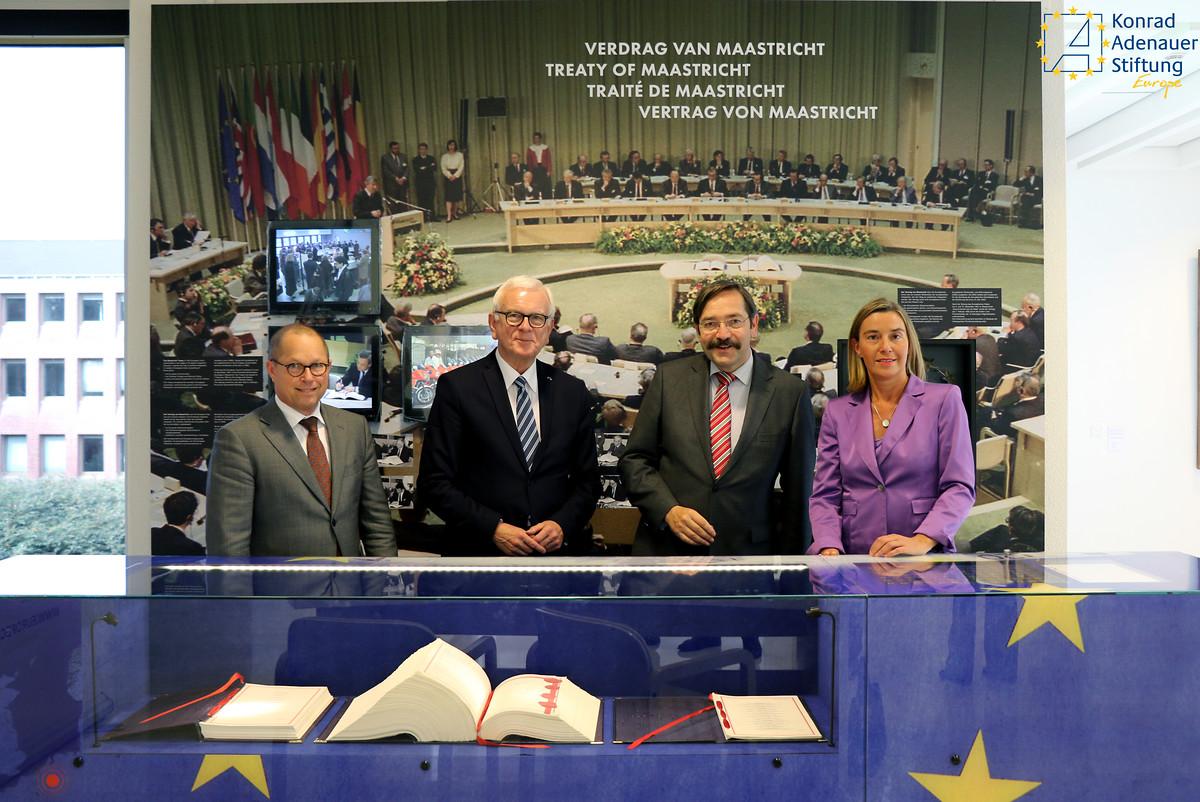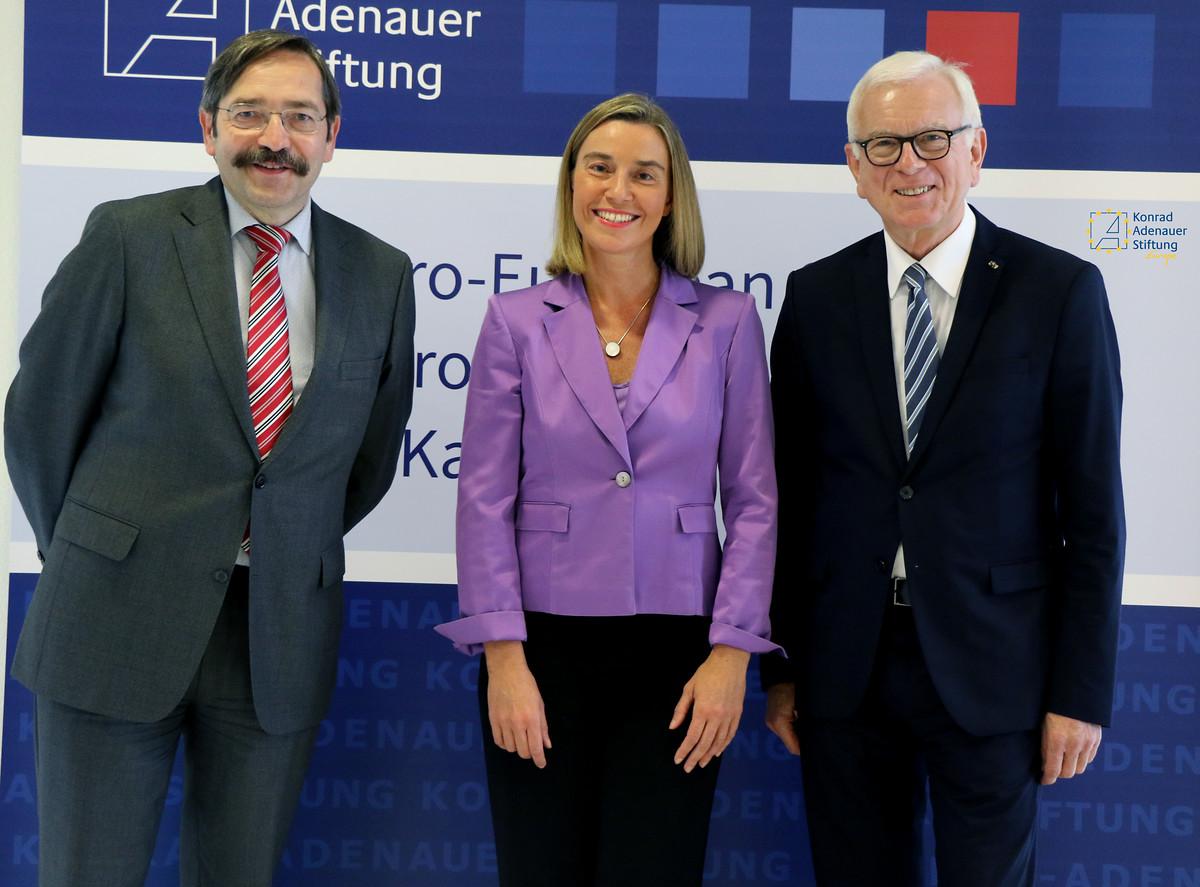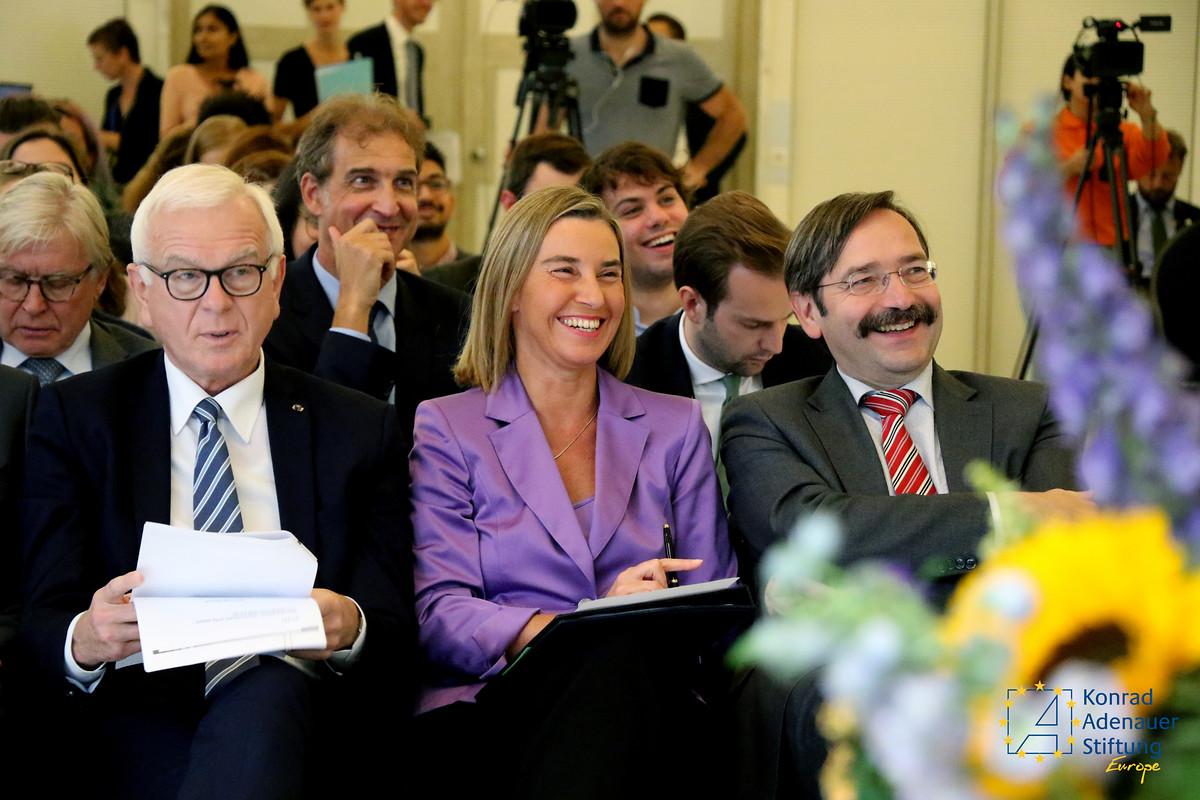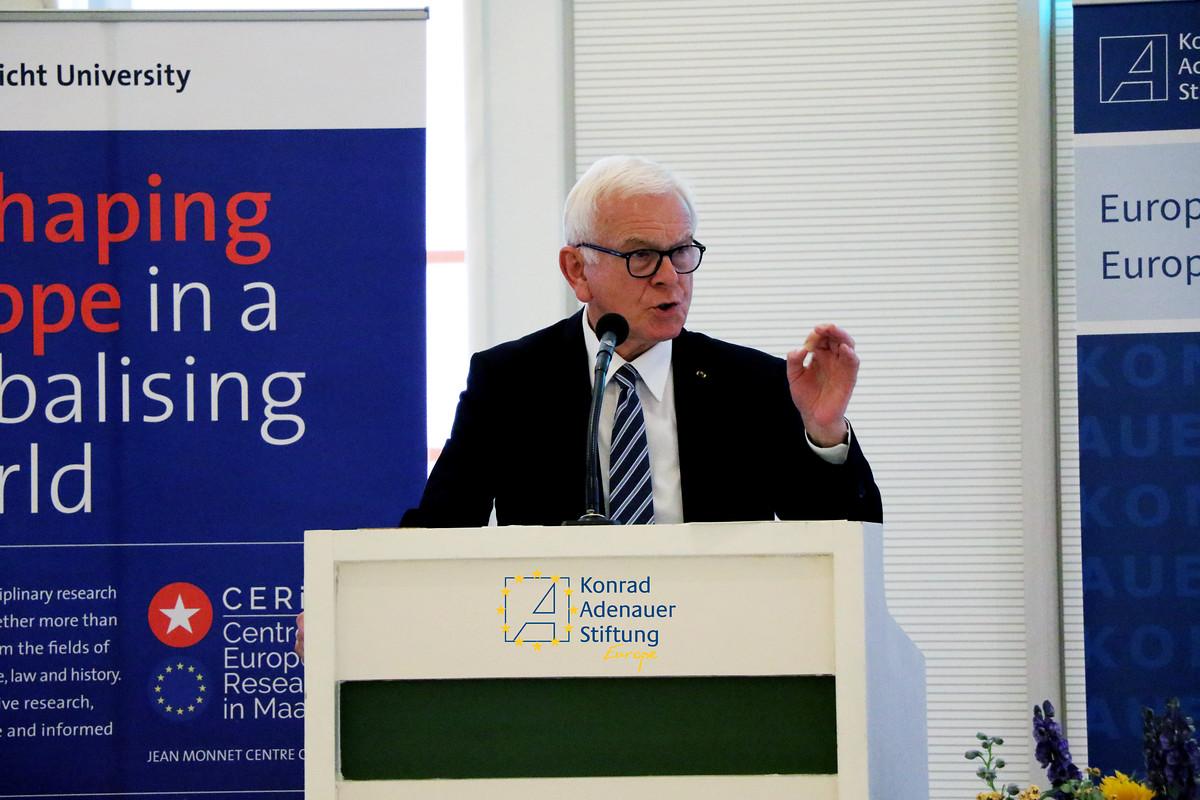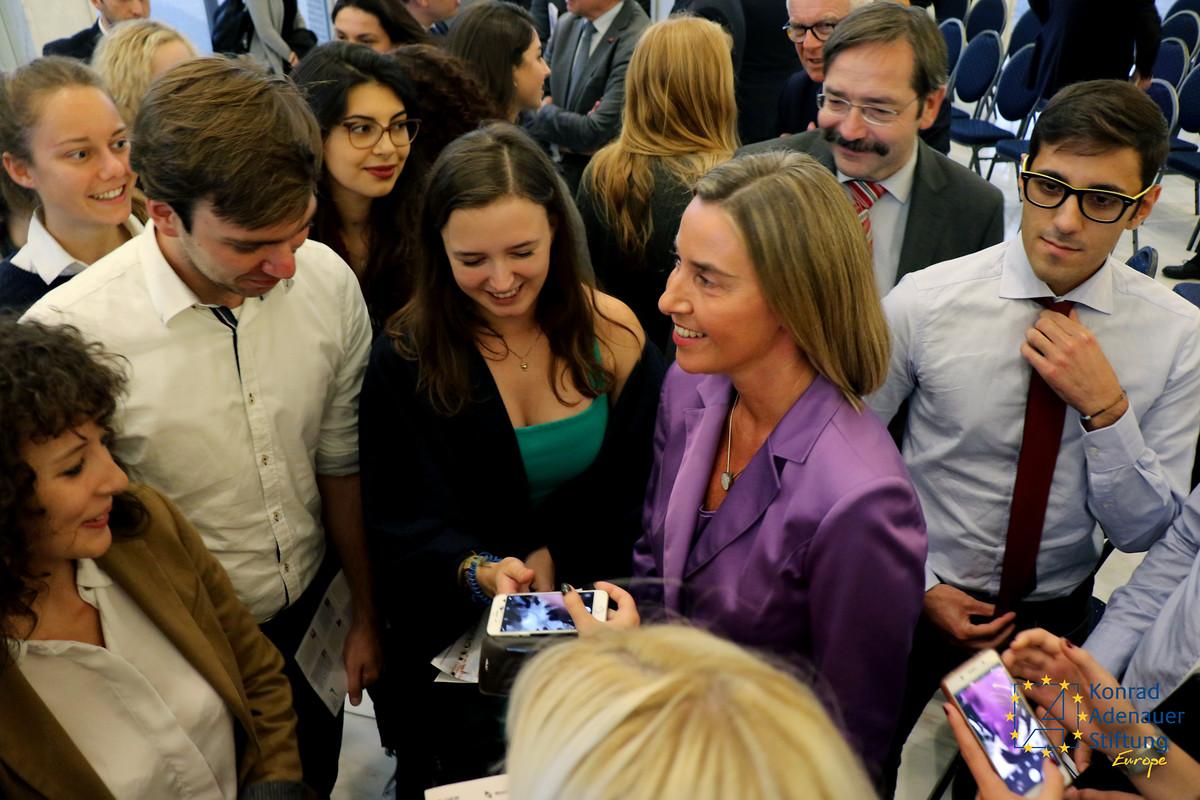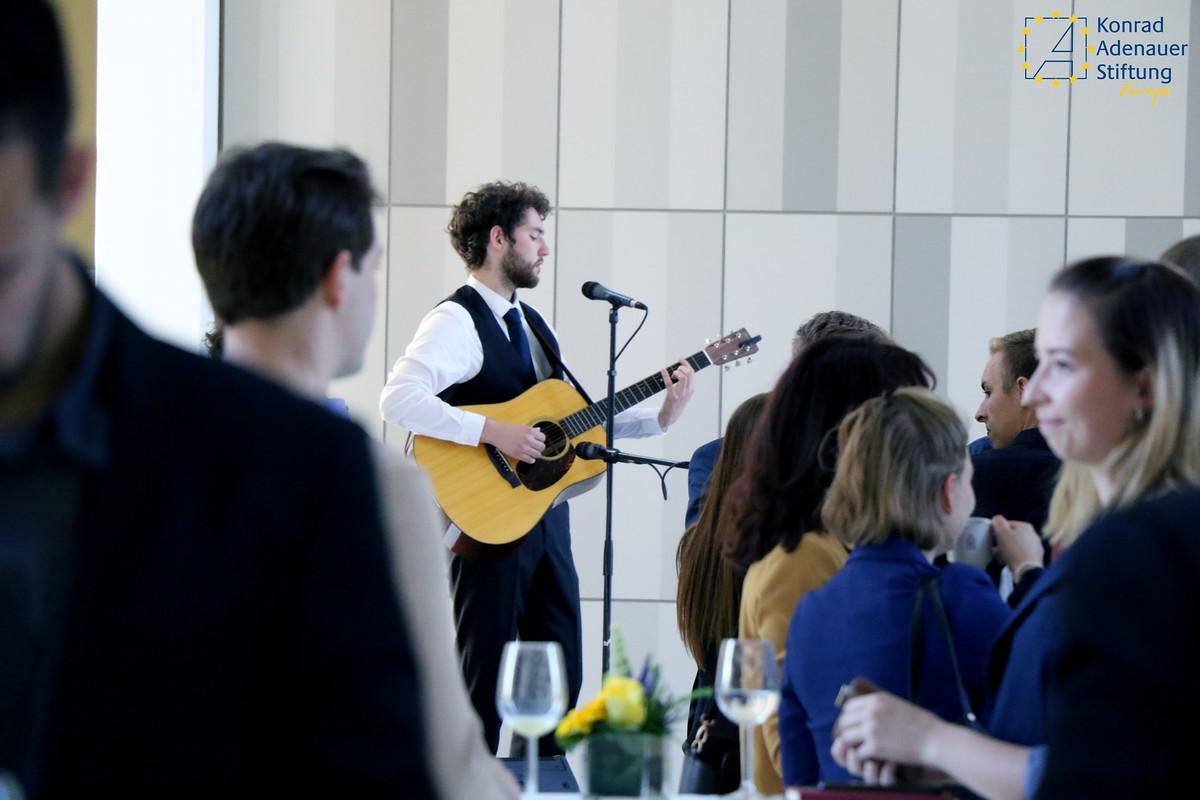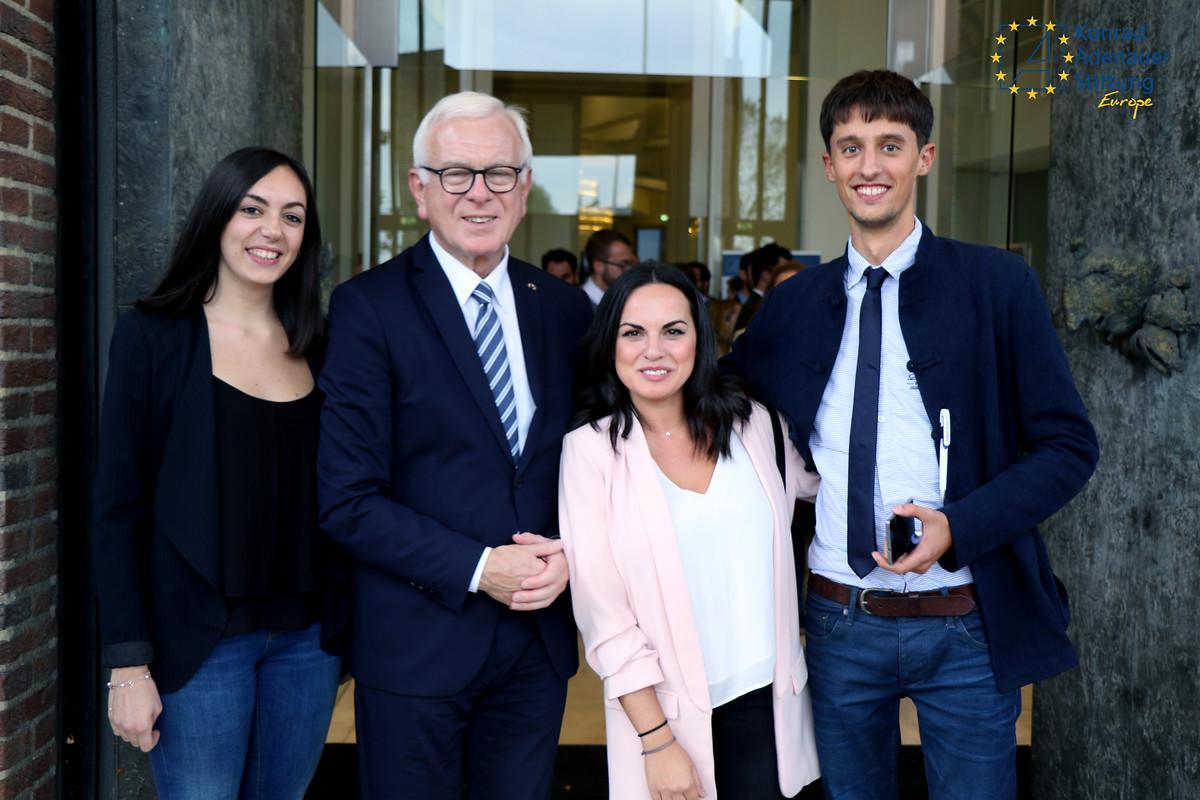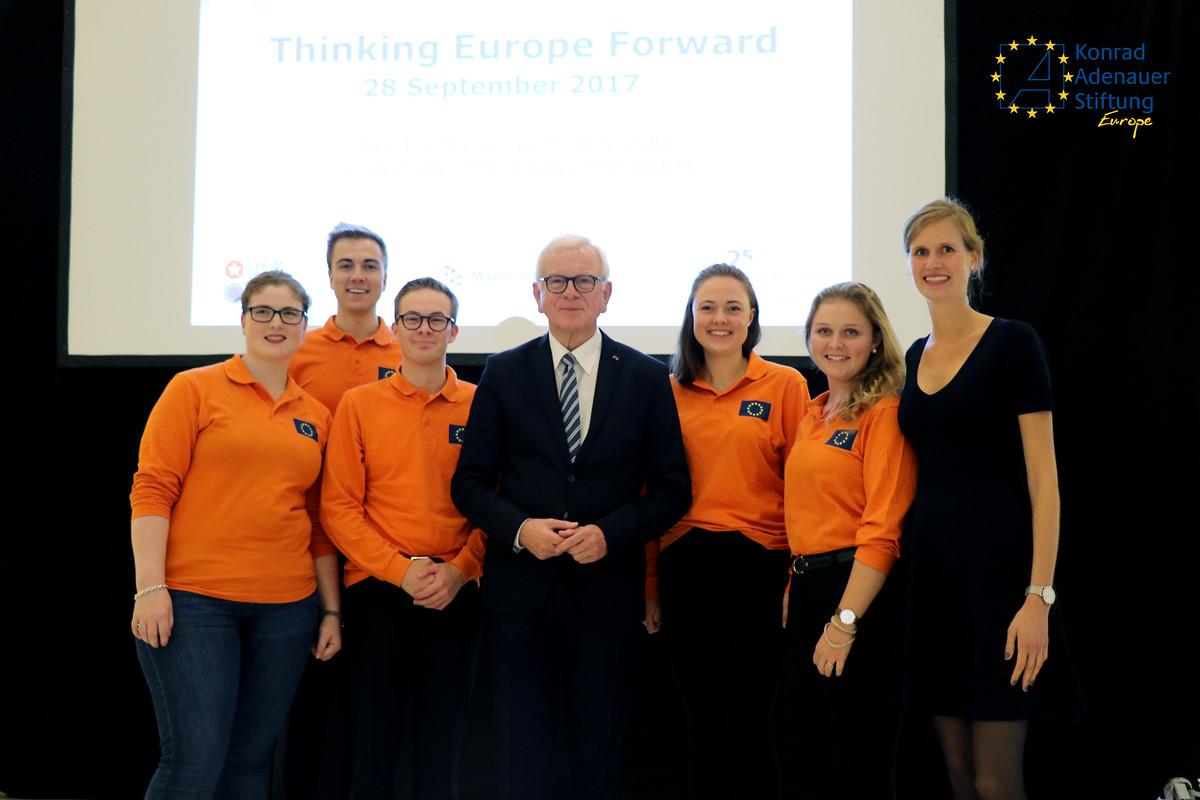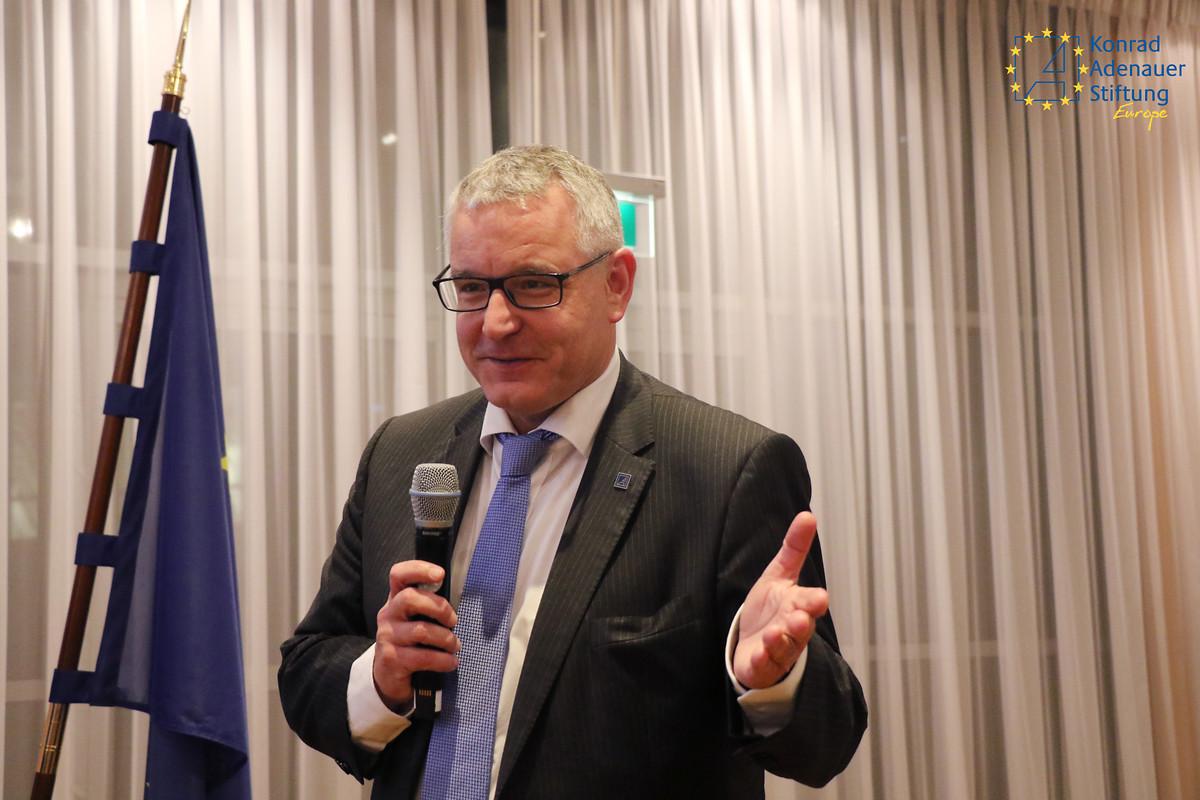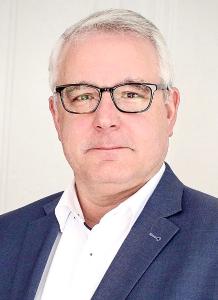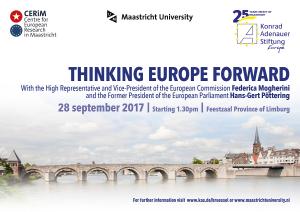The promotion of peace, security and progress, the underlying idea of the Maastricht Treaty, marks a significant step in the European integration process. In 1992, a whole continent for the first time commonly supported the promotion of peace and created, through the introduction of the Euro and the Common Foreign and Security Policy, the still lasting fundament of European policy-making.
On 28 September 2017 in the Feestzaal of the Province Building of Limburg, Dr. Hans-Gert Pöttering, former President of the European Parliament and President of the Konrad-Adenauer-Stiftung, and Federica Mogherini, High Representative of the European Union, spoke about the lasting and cross-generational importance of the Maastricht Treaty. About 300 guests followed the invitation of the European Office and Maastricht University to “think Europe forward”. Next to numerous students, representatives of local politics, the University of Maastricht and the media gathered in the historic city of Maastricht, where the Treaty itself has been negotiated and signed.
At the opening of “Thinking Europe Forward”, Theo Bovens, the Governor of Limburg, and Dr. Nick Bos, Vice-President of Maastricht University, underlined that even after 25 years the EU’s founding spirit can still be felt. In order to strengthen the feeling of European unity even more, it is of vital importance to mobilize the young generation to get involved in the European project and to build upon the pillars of European cooperation established in Maastricht. Federica Mogherini, as the event’s special guest, explained that the integrational steps taken in 1992 have exceeded political and economic realms. Maastricht laid the groundwork for an all-encompassing European cooperation, bringing people from different nationalities closer together and strengthening the awareness for the interconnectedness of our continent, for example through the Erasmus exchange program for students. For the former President of the European Parliament, Dr. Hans-Gert Pöttering, the commitment to Europe in 1992 was directly connected to the German unification, emphasizing that national and European paths are strongly interwoven.
The second part of “Thinking Europe Forward” comprised four parallel workshops and showed that topics that determined the negotiations in Maastricht back then, are still of great relevance today. Together with political and academic representatives like René van der Linden, former President of the Parliamentary Assembly of the Council of Europe, Jeroen Lenaers, Member of the European Parliament, the Italian Professor Gianfranco Pasquino, the Senior Project Manager of the German Bertelsmann Stiftung Dr. Katharina Gnath and representatives from Maastricht University, students discussed the EU’s Common Foreign and Security Policy, the Economic and Monetary Union, the recent rise of populism in European politics and the role of the youth in shaping a European future. Afterwards, all participants joined the final panel discussion, where the speakers presented each workshop’s results, giving students another opportunity to direct further questions to the experts.
“Thinking Europe Forward” showed that Maastricht, in past and present times, has the strength to bring Europeans from different national backgrounds and generations together. The founding pillars that were established in 1992 still influence present forward-looking, European discourses. Through the exchange with political and academic experts, the students have proven to be willing to actively shape the set-up of the Union of states established in 1992 und to continue to work towards a European unity. According to the President of the Konrad-Adenauer-Stiftung, Dr. Hans-Gert Pöttering, we should constantly “think Europe forward” and strengthen the European capabilities of the Member States, even though this might mean to agree on compromises.



